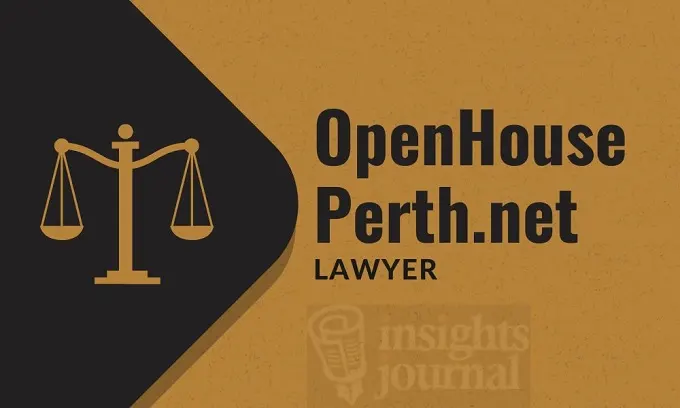In this comprehensive guide, we’ll walk you through everything you need to know about small claims court. From filing your claim to presenting your case before a judge, we’ll cover all the essential steps to help you navigate this process with confidence. So, let’s dive in and demystify the world of small claims court!
Understanding Small Claims Court
What is Small Claims Court?
Small claims court is a special part of the judicial system designed to handle minor civil disputes quickly and inexpensively. It’s often called “the people’s court” because it allows individuals to represent themselves without the need for a lawyer. The goal is to provide a fair and accessible way for people to resolve their differences without getting bogged down in complex legal procedures.
Types of Cases Handled in Small Claims Court
Small claims courts typically handle a variety of cases, including:
- Disputes over money owed
- Property damage claims
- Disagreements over contracts or services
- Landlord-tenant issues
- Consumer complaints against businesses
The maximum amount you can sue for in small claims court varies by state, but it’s usually between $3,000 and $10,000. It’s important to check your local court’s limits before filing a case.
The Role of the Judge in Small Claims Court
In small claims court, the judge plays a crucial role. Unlike in regular civil cases, there’s no jury in small claims court. The judge listens to both sides of the case, asks questions, and makes a decision based on the evidence presented. They may also:
- Help guide the proceedings
- Clarify legal issues
- Ensure both parties have a fair chance to present their case
Remember, the judge’s decision is usually final in small claims court, with limited options for appeal. This makes it even more important to prepare your case thoroughly and present it effectively.
Preparing for Small Claims Court
Steps to Take Before Filing a Claim
Before you rush to the courthouse to file your claim, there are several important steps you should take:
- Try to settle the dispute: Always attempt to resolve the issue directly with the other party first. A simple conversation or a written demand letter can often solve the problem without going to court.
- Gather information: Collect all relevant information about the other party, including their full name, address, and contact details. If you’re suing a business, make sure you have the correct legal name of the company.
- Check the statute of limitations: Every type of case has a time limit within which you must file. Make sure your claim is within this timeframe.
- Determine the right court: You’ll usually need to file in the county where the defendant lives or where the dispute occurred.
- Calculate your damages: Figure out exactly how much money you’re owed. Be prepared to explain how you arrived at this amount.
Gathering and Organizing Evidence
Evidence is crucial in small claims court. The judge will base their decision on the evidence presented, so it’s essential to gather and organize it carefully. Here are some types of evidence you might need:
- Contracts or written agreements
- Bills, invoices, or receipts
- Photographs or videos
- Witness statements
- Expert opinions (if relevant)
- Correspondence related to the dispute (emails, text messages, letters)
Organize your evidence in a logical order, and make copies for the court and the other party. Remember, you’ll need to leave any evidence you present with the court, so always keep the originals for yourself.
Understanding Legal Terminology
While small claims court is designed to be user-friendly, you’ll still encounter some legal terms. Here’s a quick glossary of common terms you might hear:
| Term | Definition |
|---|---|
| Plaintiff | The person who files the lawsuit |
| Defendant | The person being sued |
| Summons | Official notice of the lawsuit |
| Complaint | Document describing your claim |
| Counterclaim | When the defendant sues the plaintiff back |
| Default judgment | Decision in favor of the plaintiff when the defendant doesn’t show up |
| Subpoena | Court order requiring someone to appear or provide documents |
Preparing Your Testimony
Your testimony is your chance to tell your side of the story to the judge. Here are some tips for preparing:
- Write down the key points of your case in chronological order
- Practice explaining your case clearly and concisely
- Anticipate questions the judge or the other party might ask
- Be prepared to explain any evidence you’re presenting
- Stay calm and stick to the facts
Remember, the judge will appreciate a clear, organized presentation of your case. Keep it simple and straightforward.
Filing a Claim in Small Claims Court
The Process of Filing a Claim
Now that you’re prepared, it’s time to file your claim. Here’s a step-by-step guide:
- Visit your local courthouse: Go to the clerk’s office at your local court. Some courts may allow you to file online.
- Fill out the complaint form: The court clerk will provide you with a complaint form. Fill it out carefully, providing all required information about yourself, the defendant, and your claim.
- Pay the filing fee: There’s usually a fee to file a small claims case. The amount varies by location and the size of your claim. If you can’t afford the fee, ask about fee waivers.
- Serve the defendant: After you file, the defendant must be officially notified of the lawsuit. This is called “service of process.” The court will provide instructions on how to do this properly.
- Wait for a response: The defendant has a certain amount of time to respond to your claim. They may agree to pay, dispute the claim, or file a counterclaim against you.
- Get your court date: If the defendant disputes the claim, the court will set a hearing date.
Costs Associated with Filing a Claim
While small claims court is generally less expensive than regular court, there are still some costs to consider:
- Filing fees (usually between $30 and $100)
- Service of process fees (if you use a process server)
- Fees for obtaining evidence or expert opinions
- Lost wages if you need to take time off work for court
What to Expect After Filing a Claim
After you file your claim, several things might happen:
- The defendant might contact you to settle out of court
- The defendant might file a response or a counterclaim
- You might be required to attend mediation before your court date
- You’ll receive notice of your court date (usually within 30-70 days)
Remember, even after filing, you can still try to settle your case outside of court. Many small claims cases are resolved before the actual hearing.
The Day of the Court
What to Wear and Bring to Court
On your court date, it’s important to make a good impression. Here’s what you should wear and bring:
Dress Code:
- Dress neatly and conservatively
- Avoid casual clothing like t-shirts, shorts, or flip-flops
- Think “business casual” at minimum
What to Bring:
- All your evidence (documents, photos, etc.)
- A notepad and pen
- Your case number
- A copy of your filed complaint
- Any witnesses you’ve arranged to testify
How to Present Your Case Effectively
When your case is called, you’ll have the chance to present your side to the judge. Here are some tips:
- Be organized: Present your case in a logical, chronological order.
- Be concise: Stick to the important facts. The judge may have many cases to hear that day.
- Be respectful: Always address the judge as “Your Honor.”
- Be honest: Never lie or exaggerate. It could hurt your credibility.
- Use your evidence: Refer to your documents or witnesses to support your claims.
- Listen carefully: Pay attention to questions from the judge or the other party and answer them directly.
How to Behave in Court
Your behavior in court can be just as important as the facts of your case. Here are some dos and don’ts:
Do:
- Arrive early
- Turn off your phone
- Stand when the judge enters or leaves
- Speak clearly and calmly
- Listen without interrupting
Don’t:
- Chew gum
- Argue with the judge or the other party
- Use offensive language
- Show anger or lose your temper
Remember, the judge is there to help decide your case. Being respectful and composed can only help your cause.
After the Court: Understanding the Judgment
What Happens After the Judgment
After hearing both sides, the judge will make a decision. This might happen immediately, or the judge may take the case “under advisement” and mail you the decision later. Here’s what you need to know:
- The judgment will state who won the case and any amount to be paid
- The court clerk will enter the judgment into the court records
- Both parties will receive a copy of the judgment
How to Collect the Judgment if You Win
If you win your case, it’s up to you to collect the judgment. The court doesn’t collect the money for you. Here are some steps you can take:
- Ask for voluntary payment: Contact the defendant and ask them to pay.
- Set up a payment plan: If they can’t pay all at once, consider agreeing to installments.
- File for wage garnishment: If they’re employed, you can ask the court to deduct money from their paycheck.
- Place a lien on their property: This can prevent them from selling property until they pay you.
- Hire a collection agency: As a last resort, you might consider professional help.
Remember, collecting a judgment can sometimes be challenging. Be persistent and patient.
What to Do if You Lose
If the judge rules against you, you have a few options:
- Pay the judgment: If you were countersued and lost, you’ll need to pay the amount ordered.
- File an appeal: In some cases, you may be able to appeal the decision to a higher court. This process can be complex and may require a lawyer.
- Ask for a new trial: If you have new evidence that wasn’t available at the time of the trial, you might be able to request a new hearing.
Tips and Tricks for Navigating Small Claims Court Effectively
To wrap up, here are some quick tips to help you navigate small claims court like a pro:
- Do your homework: Research similar cases to understand how judges have ruled in the past.
- Be prepared: Organize your evidence and practice presenting your case.
- Stay professional: Treat everyone in the court with respect, including the defendant.
- Know your limits: Understand what small claims court can and can’t do for you.
- Consider mediation: Many courts offer free mediation services, which can be a great way to resolve disputes.
- Follow up: If you win, be proactive about collecting your judgment.
Conclusion
Navigating small claims court might seem daunting at first, but with the right preparation and mindset, it can be an effective way to resolve disputes and seek justice. Remember, small claims court is designed for regular people to use without needing a lawyer. By understanding the process, preparing thoroughly, and presenting your case clearly and respectfully, you can increase your chances of a favorable outcome.
Whether you’re filing a claim or defending against one, the skills you’ve learned in this guide will serve you well. From gathering evidence to presenting your case before a judge, you now have the tools to navigate small claims court with confidence.
Don’t let fear or uncertainty hold you back from pursuing your rights. With this knowledge in hand, you’re well-equipped to tackle whatever challenges small claims court may bring. Good luck, and may justice prevail in your case!



